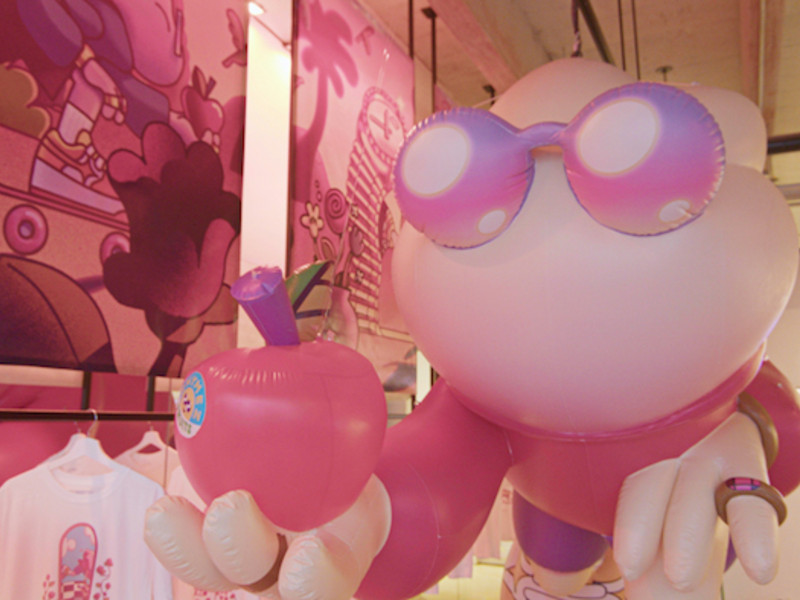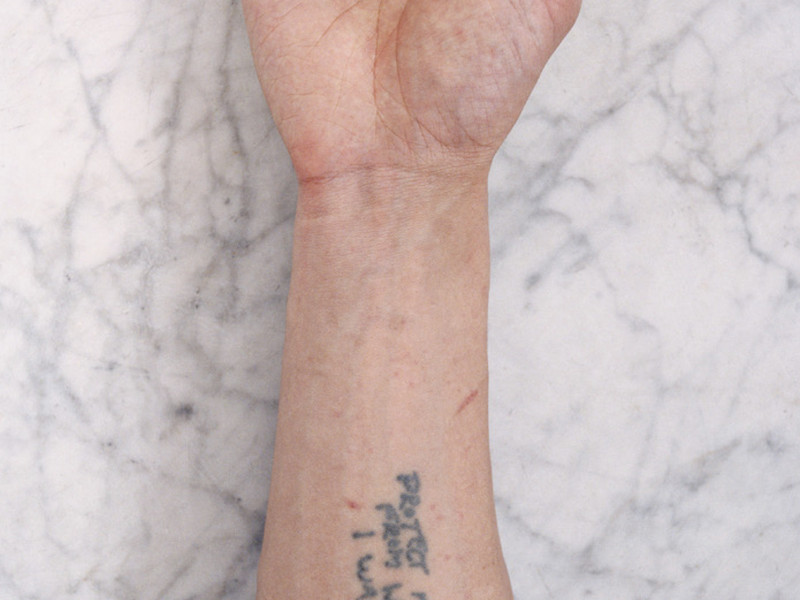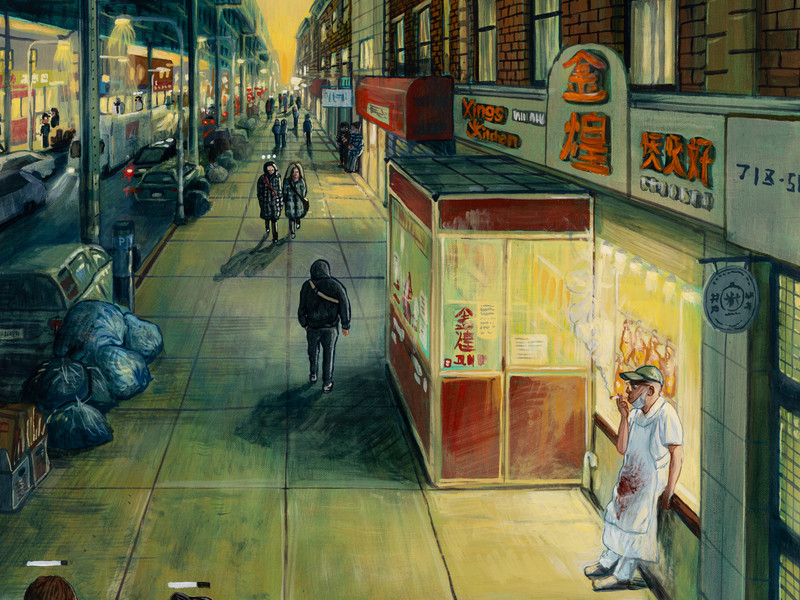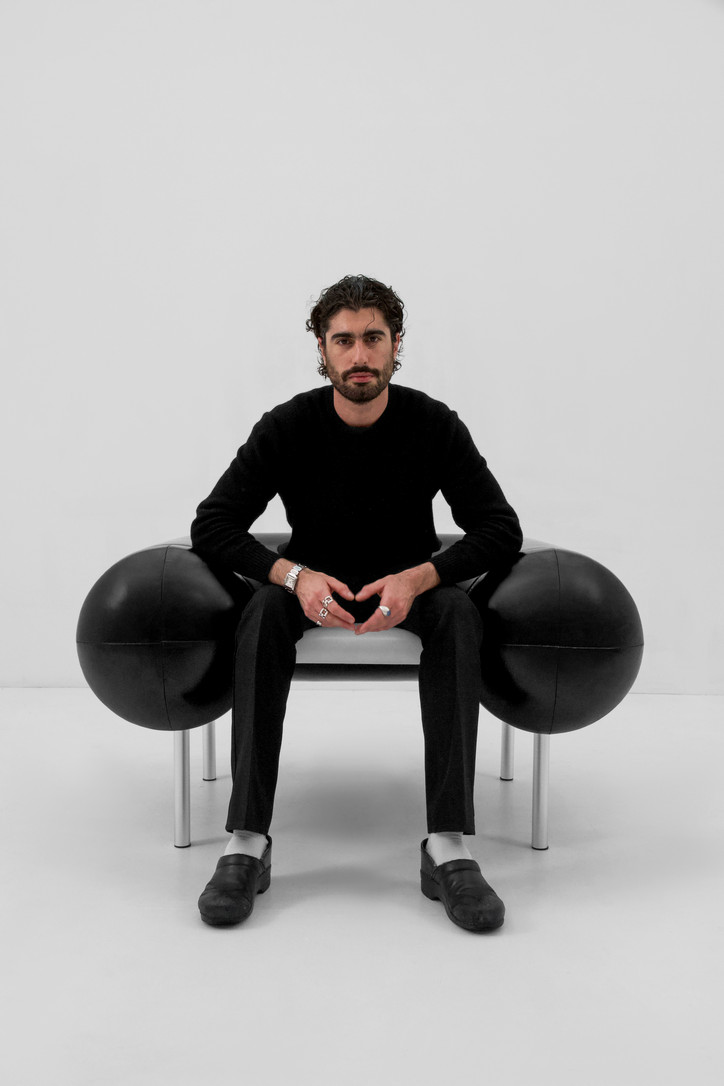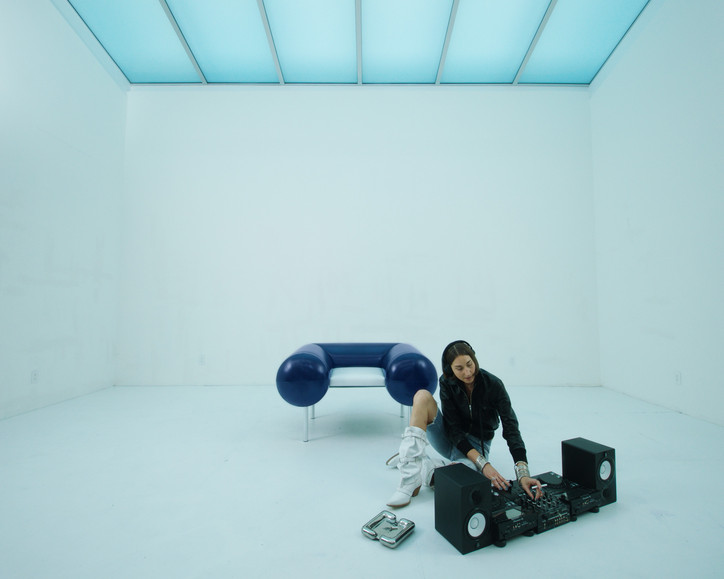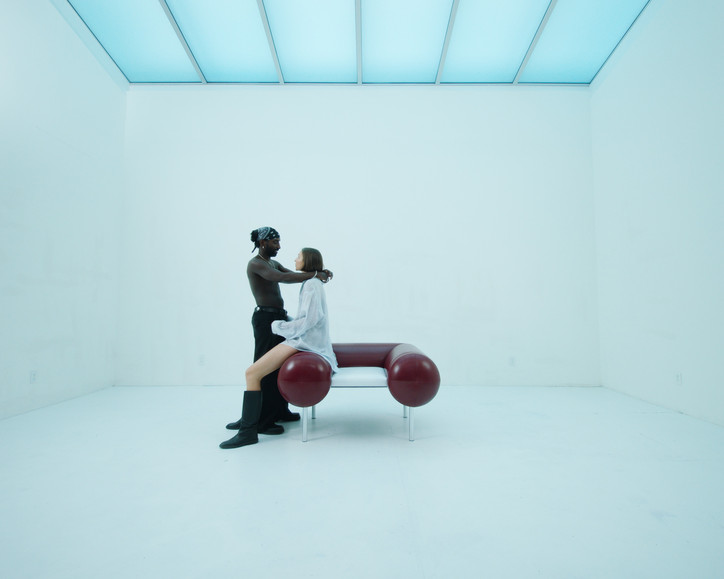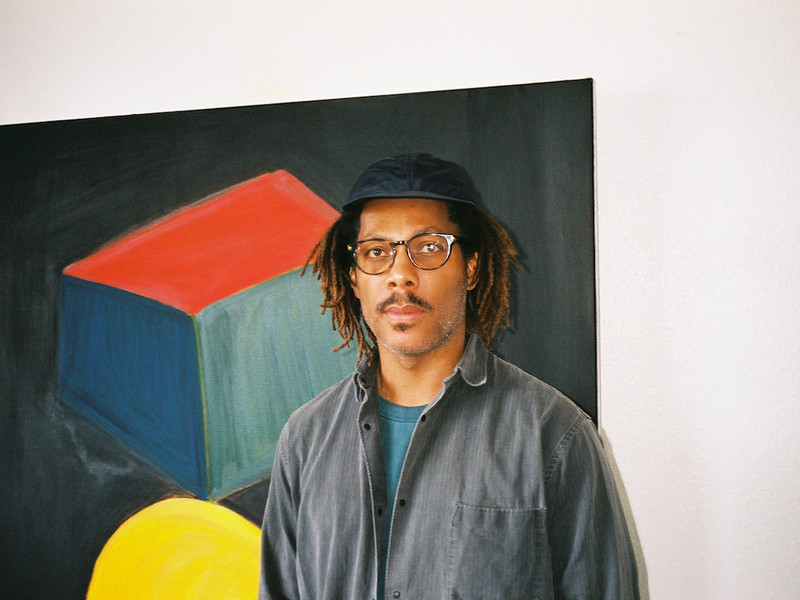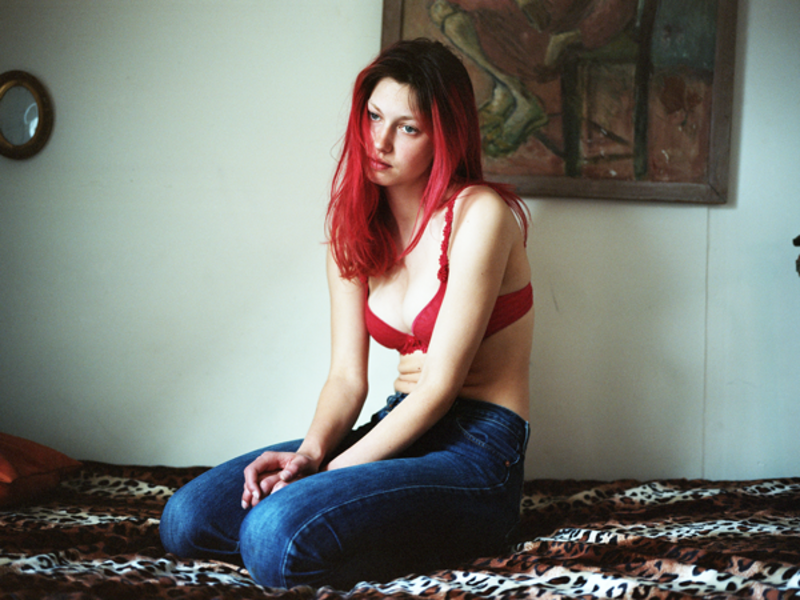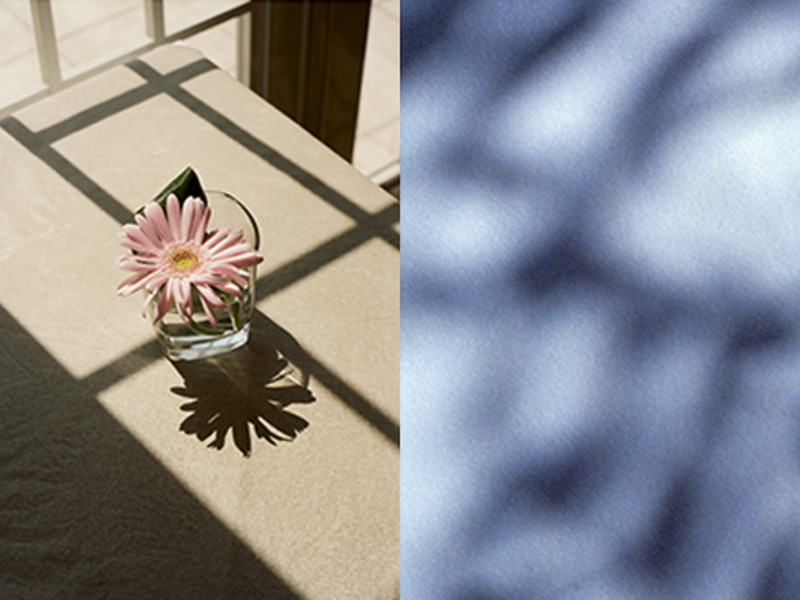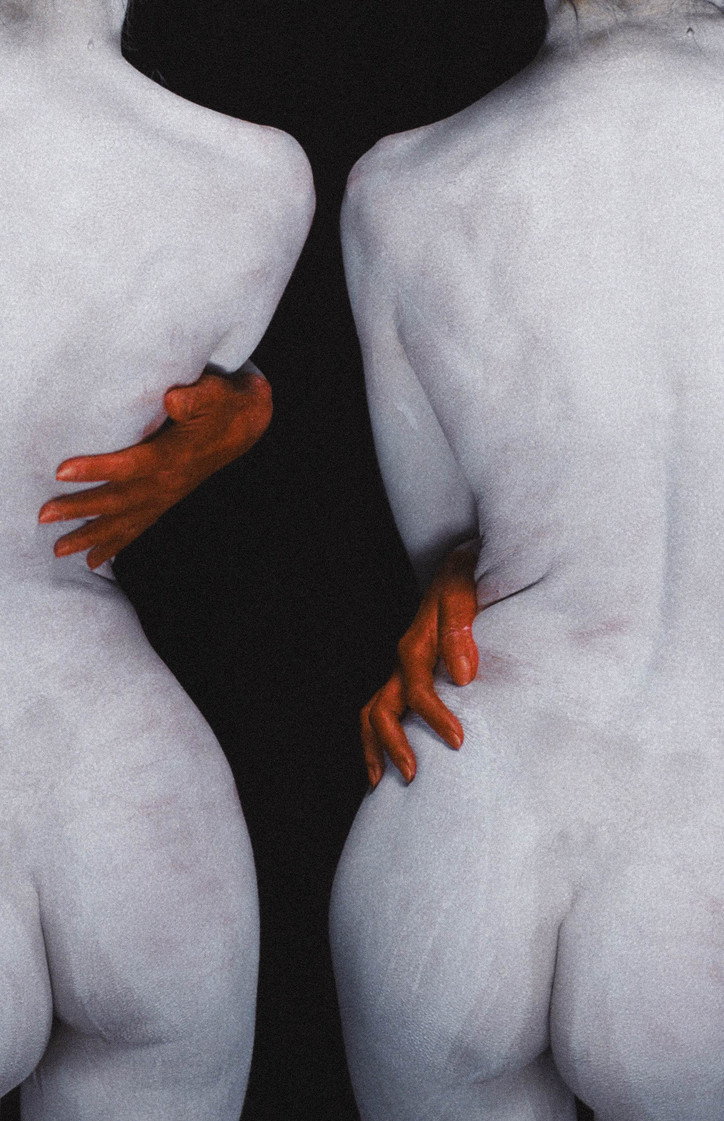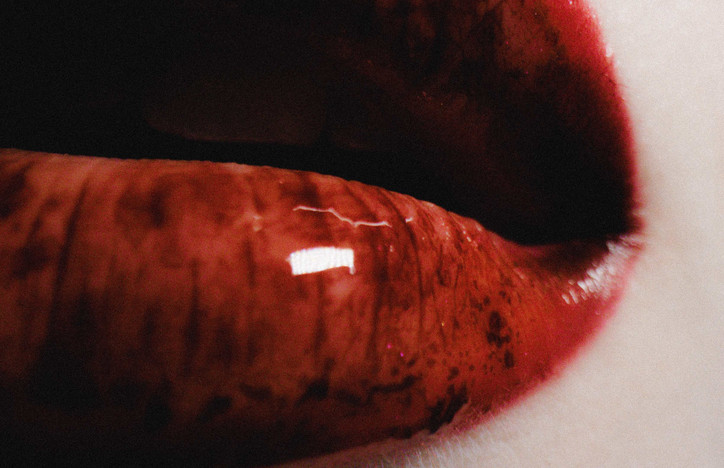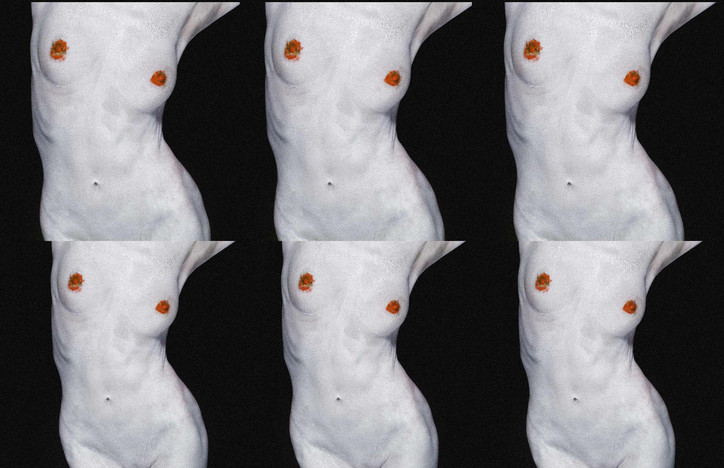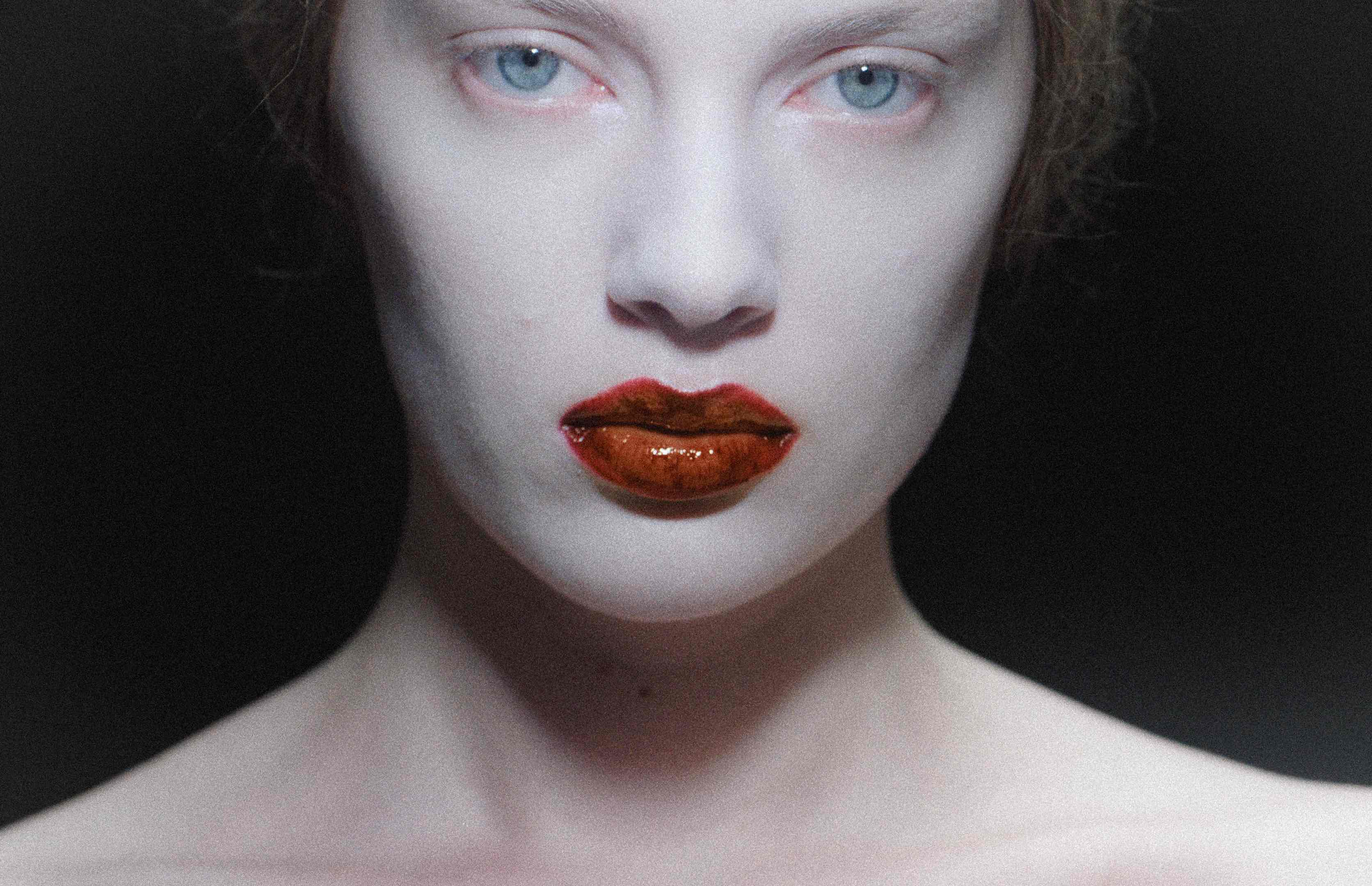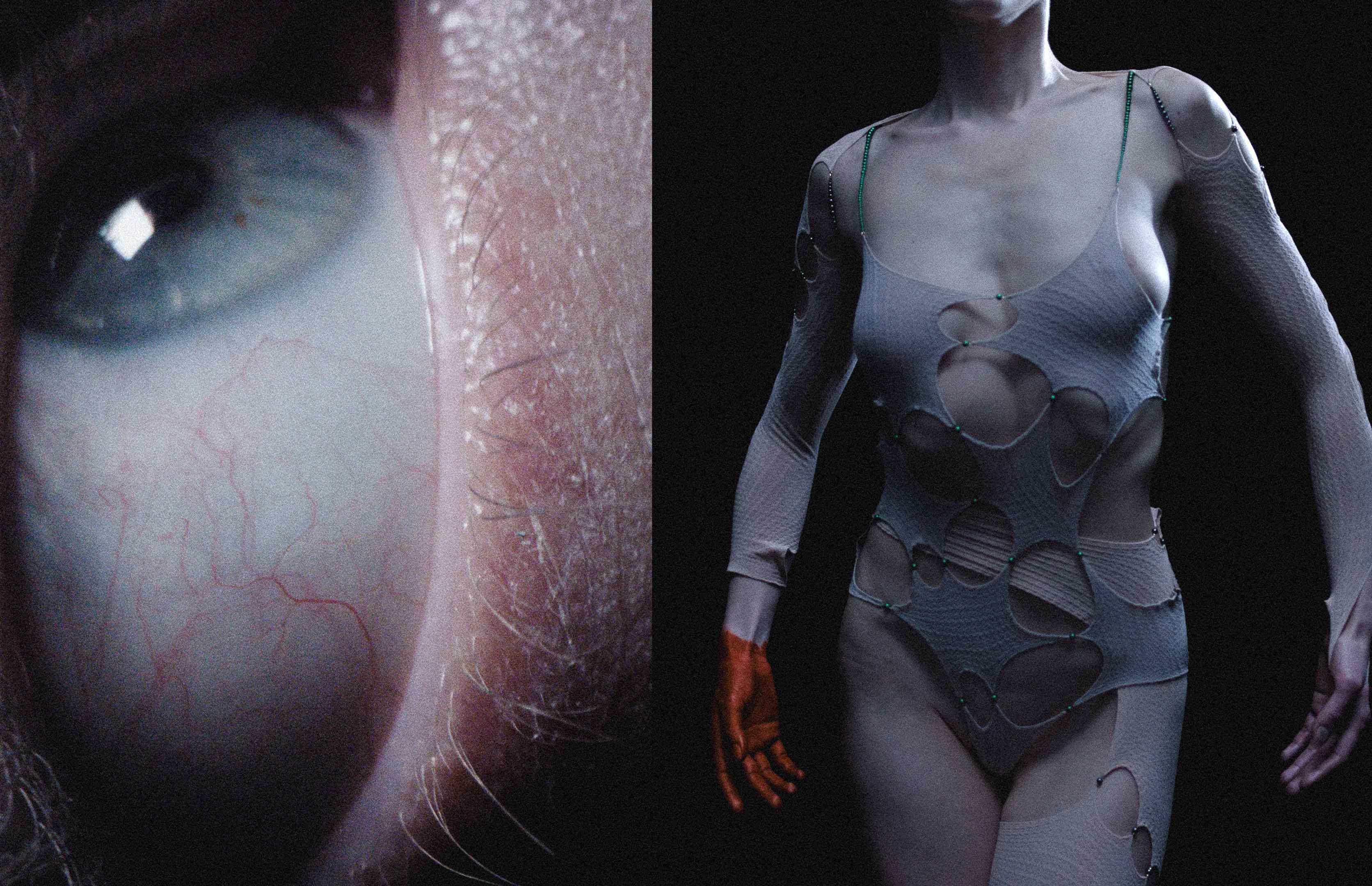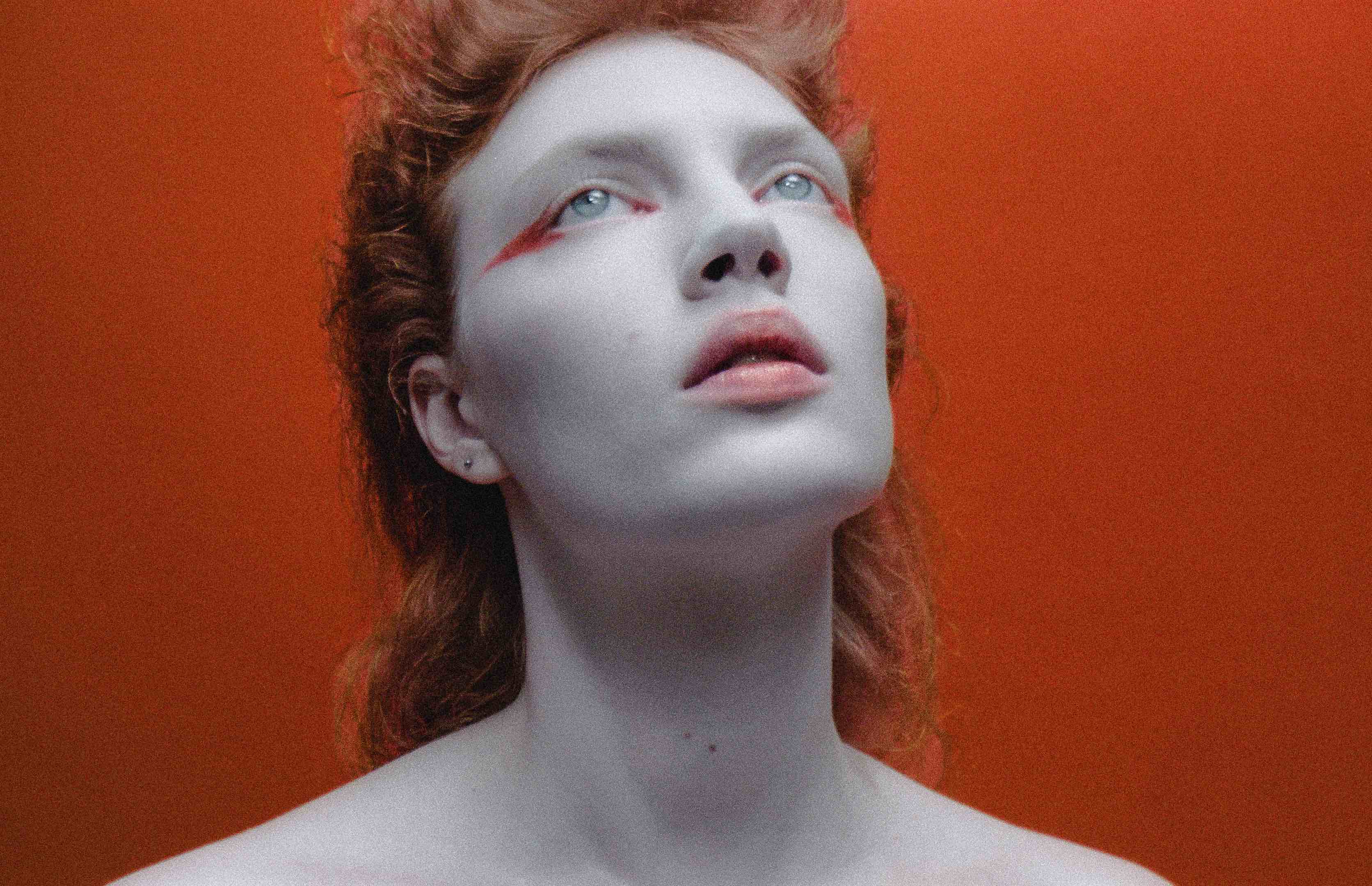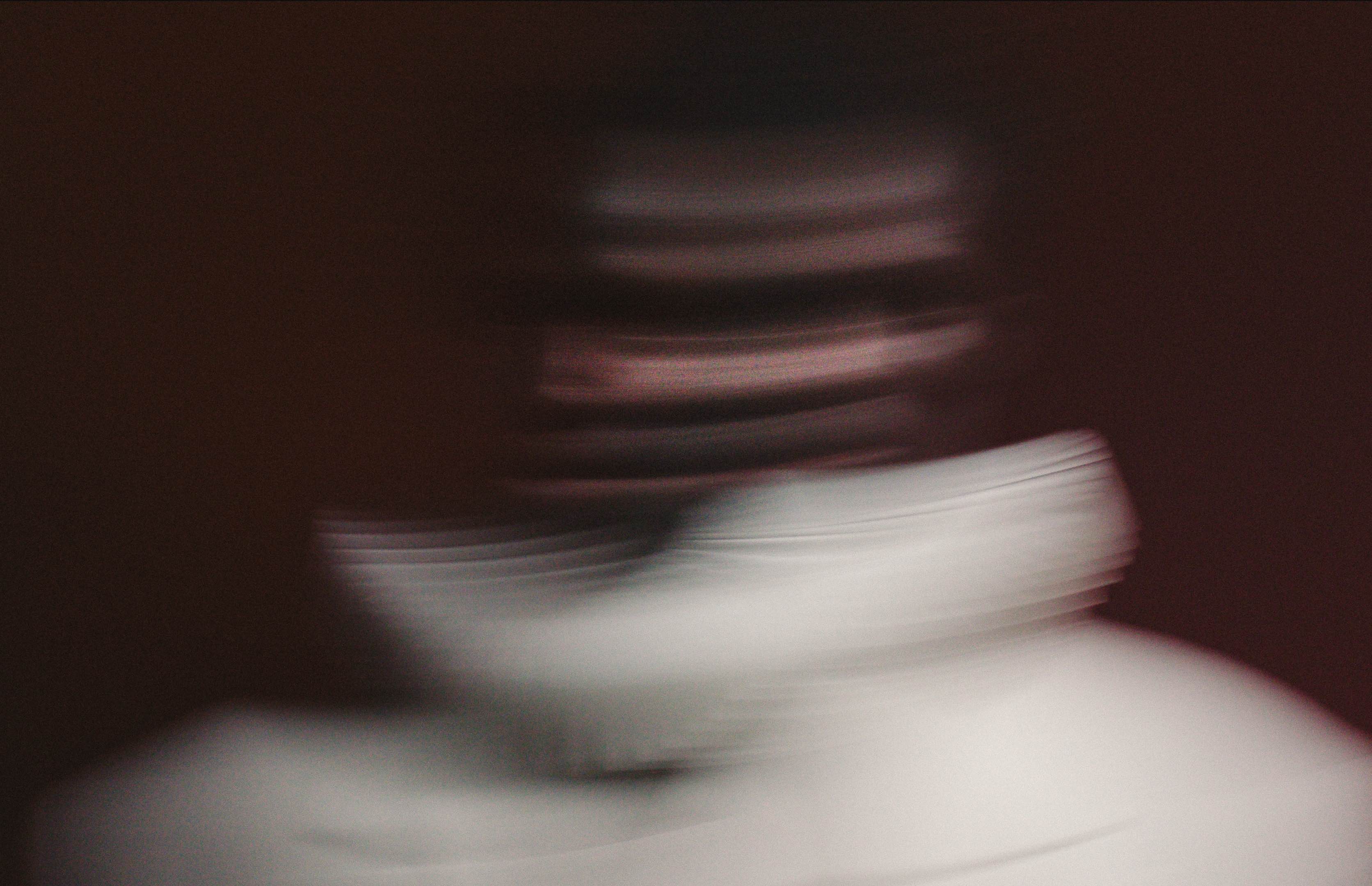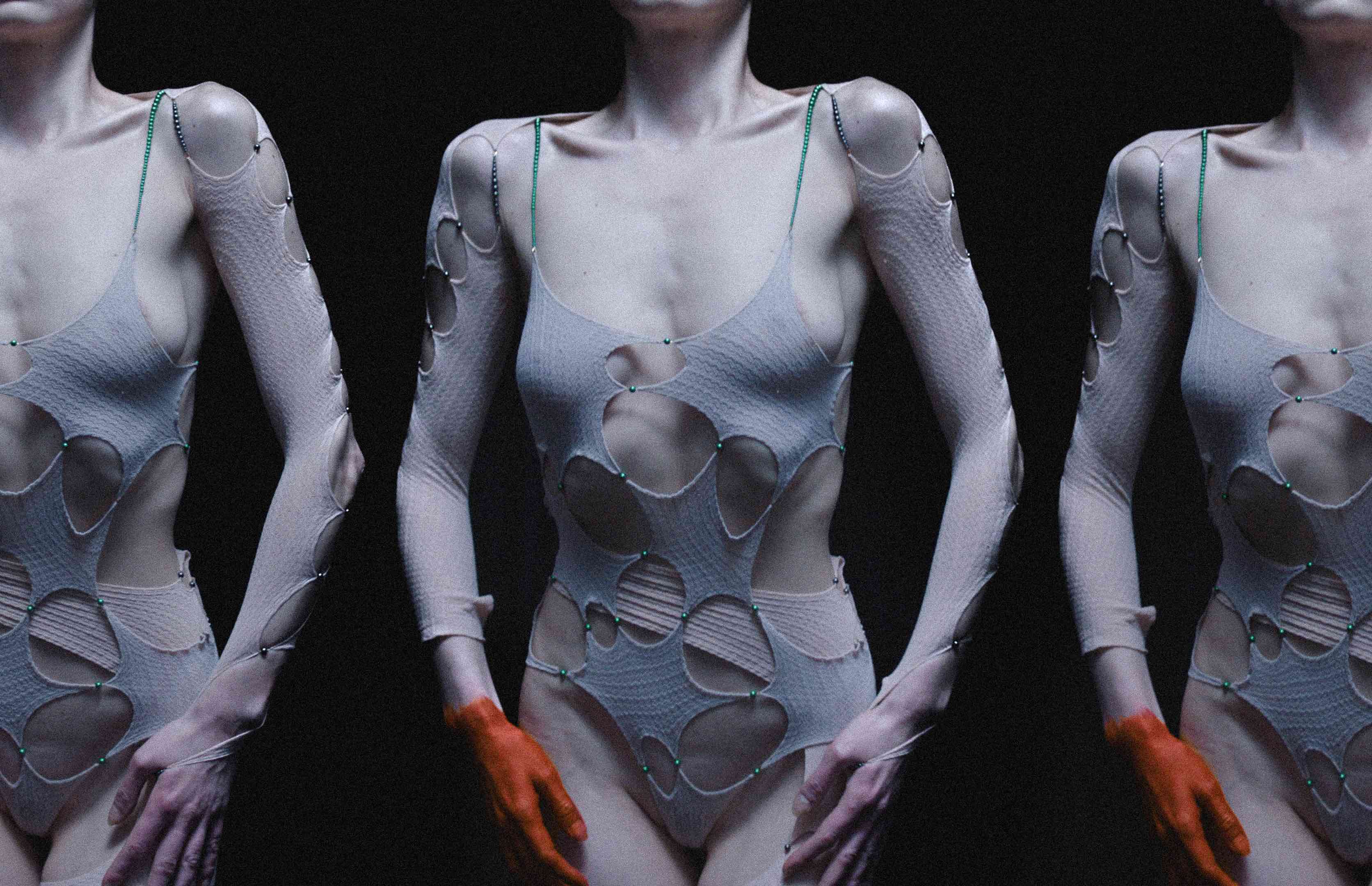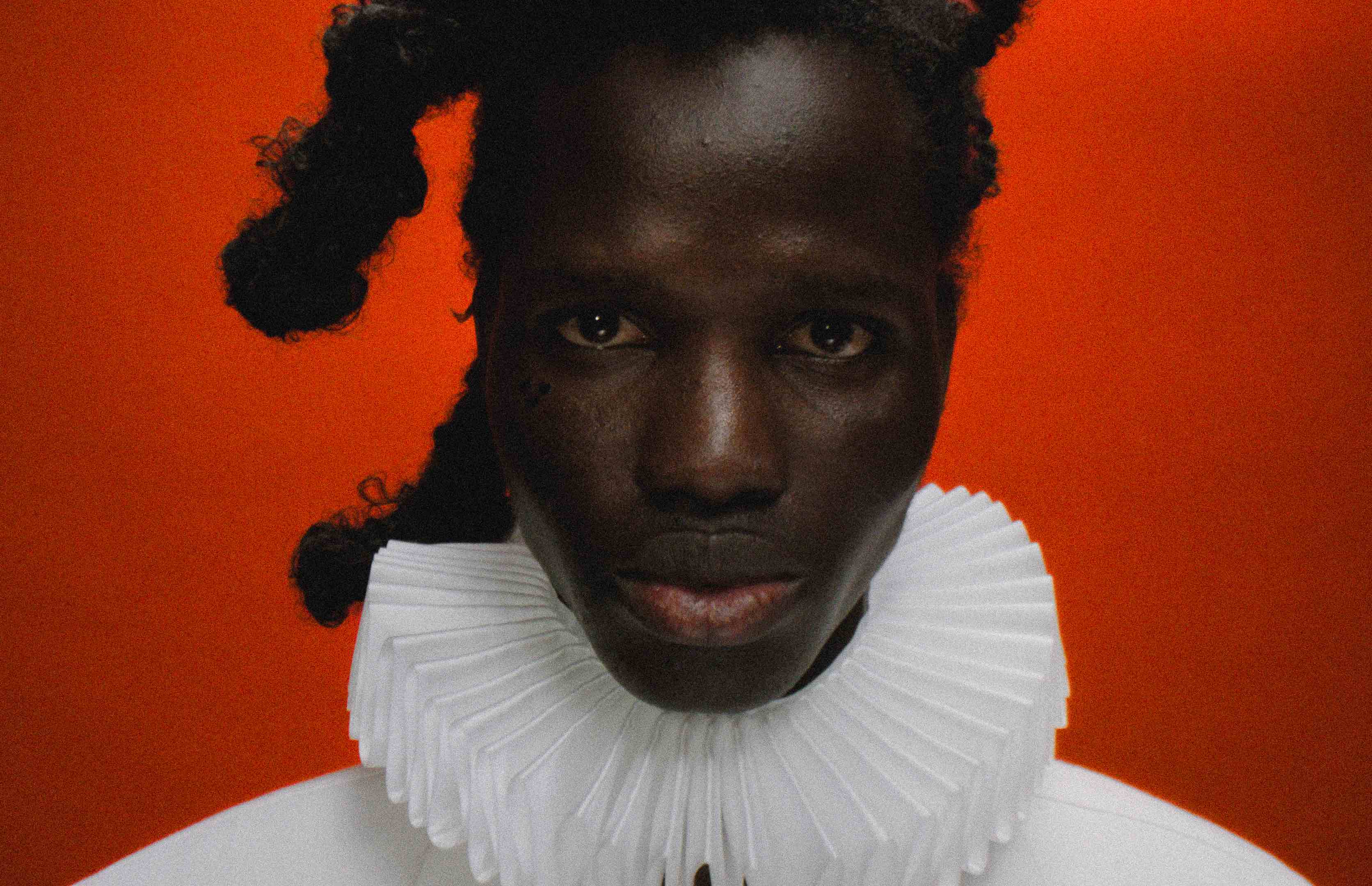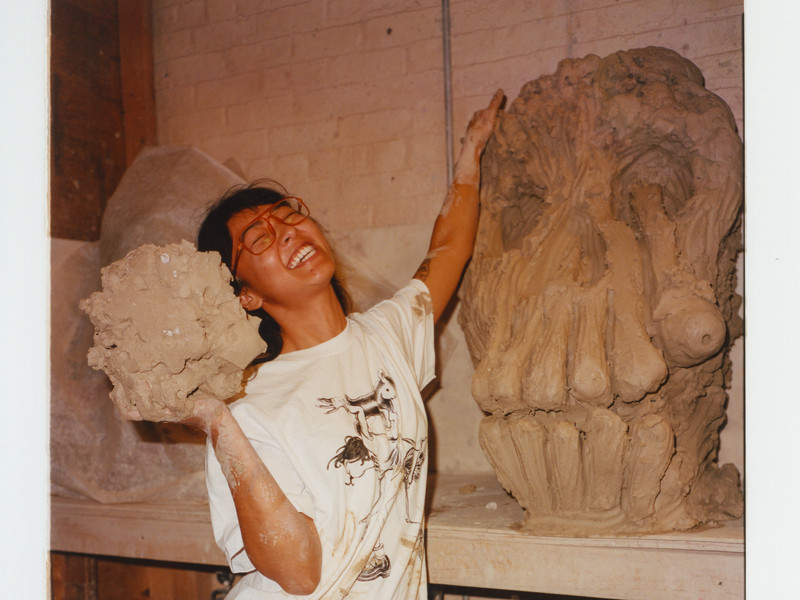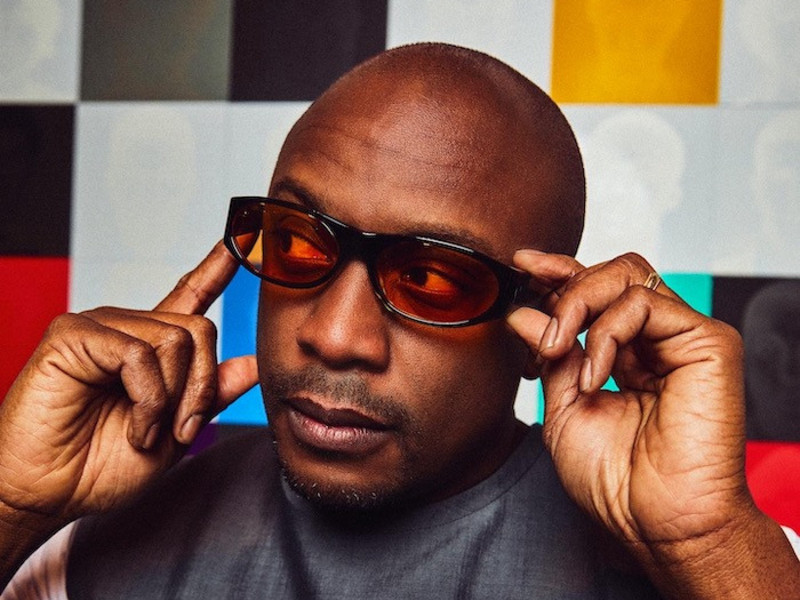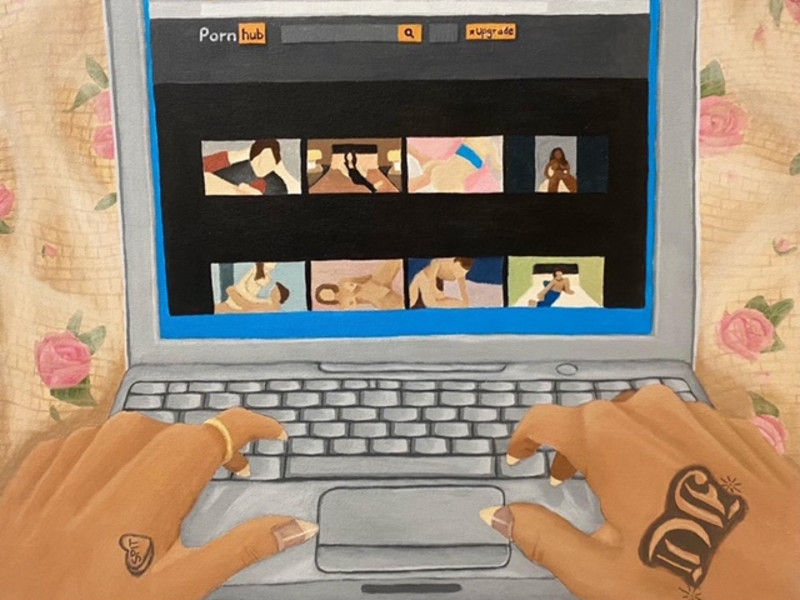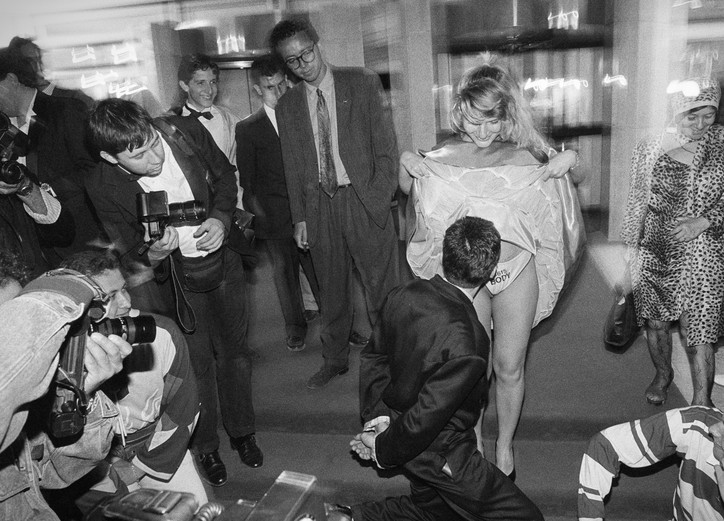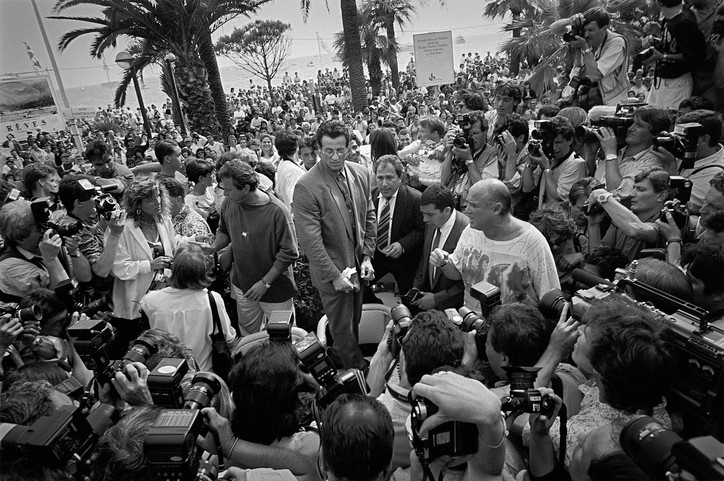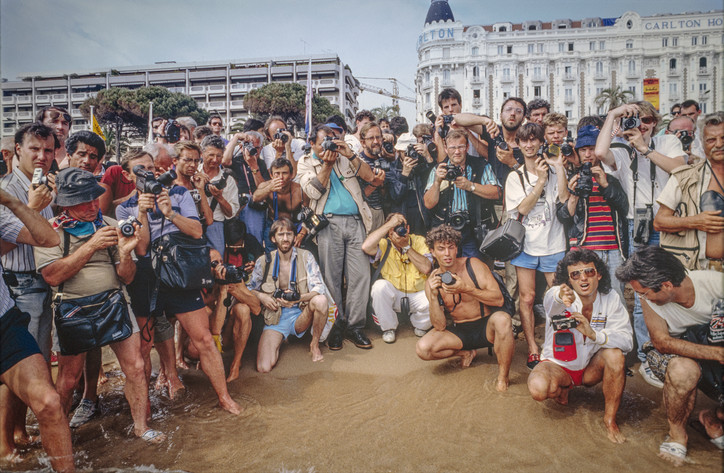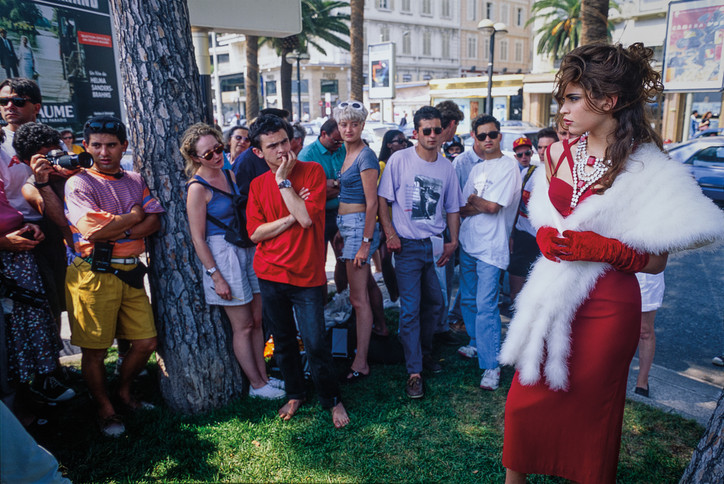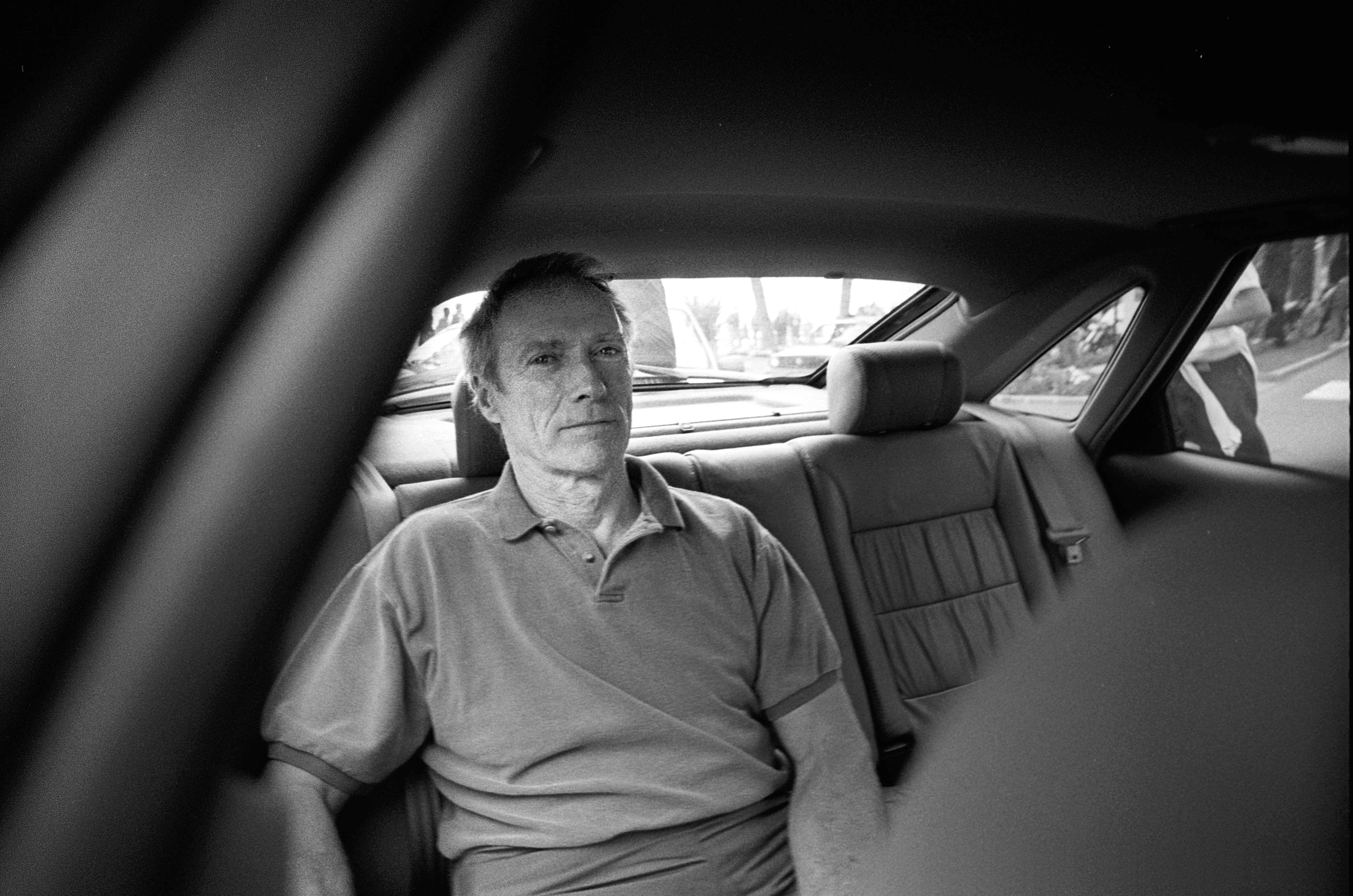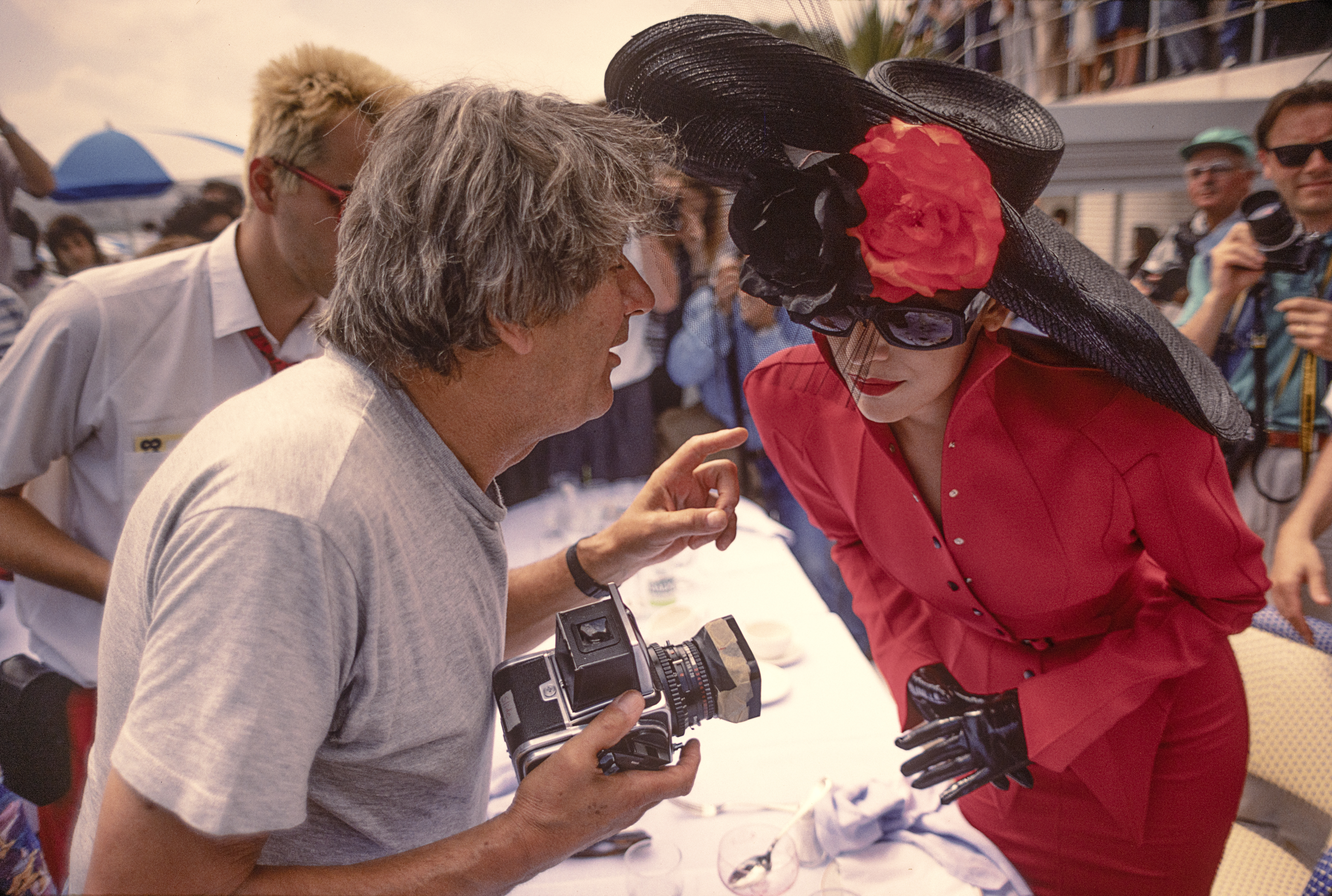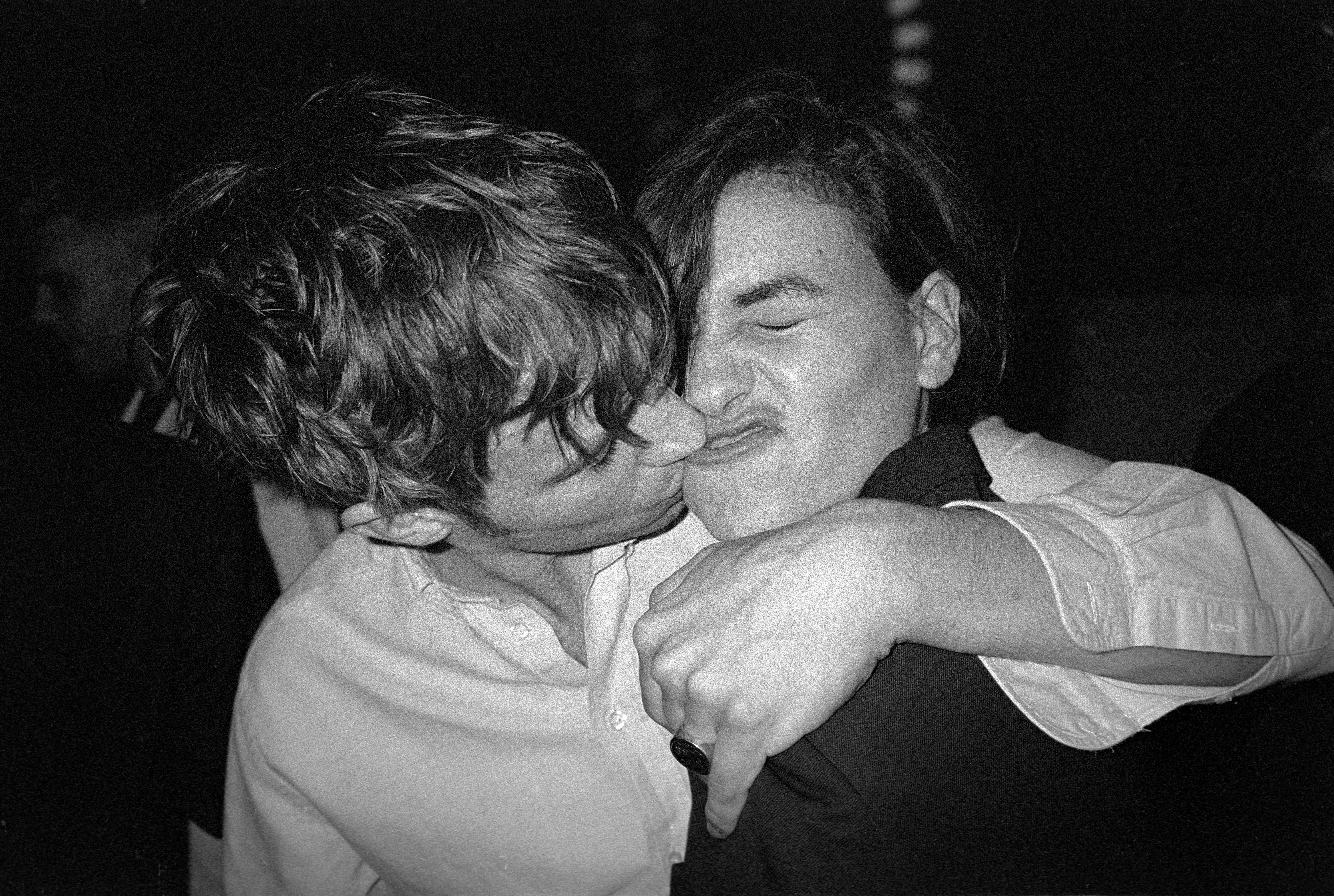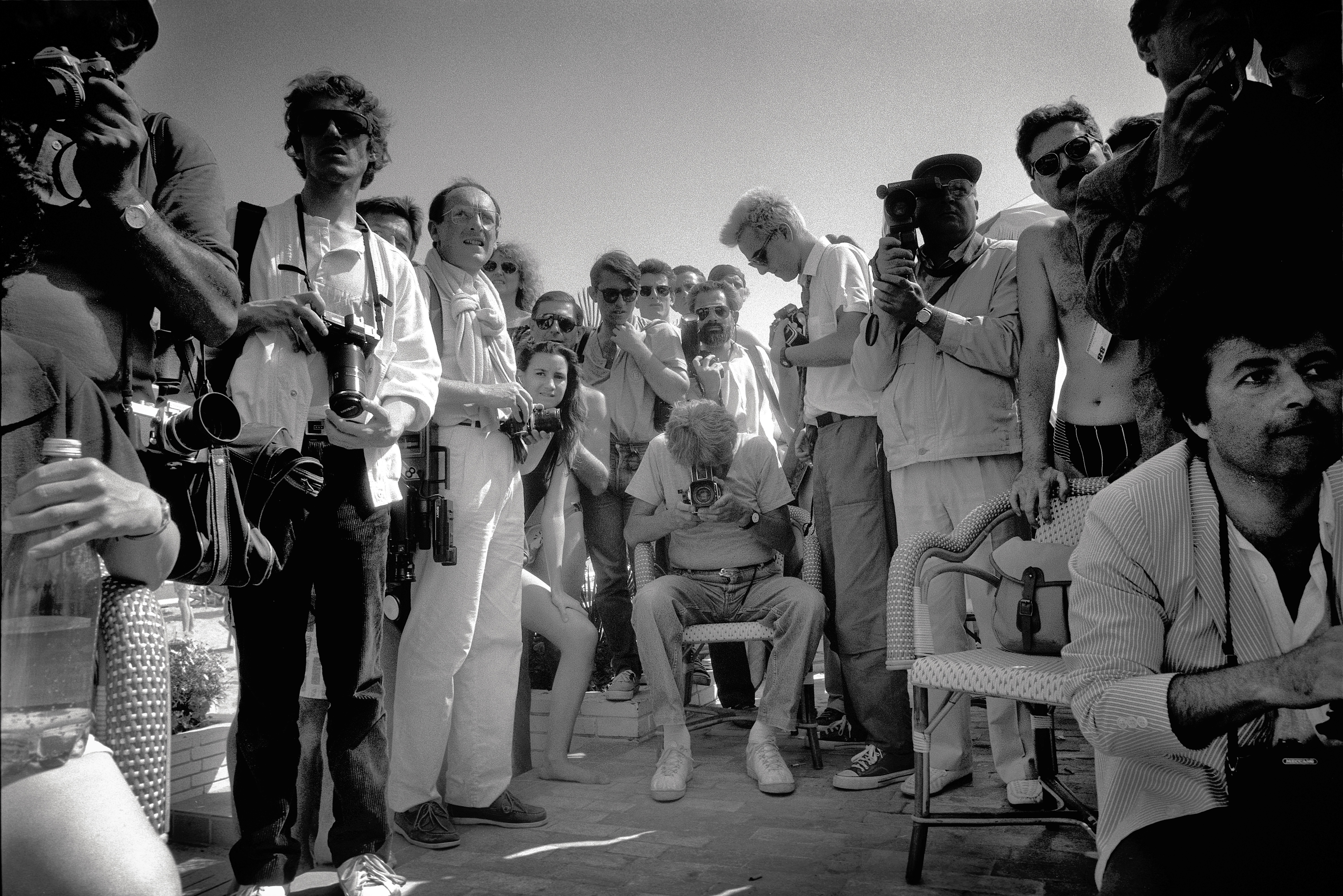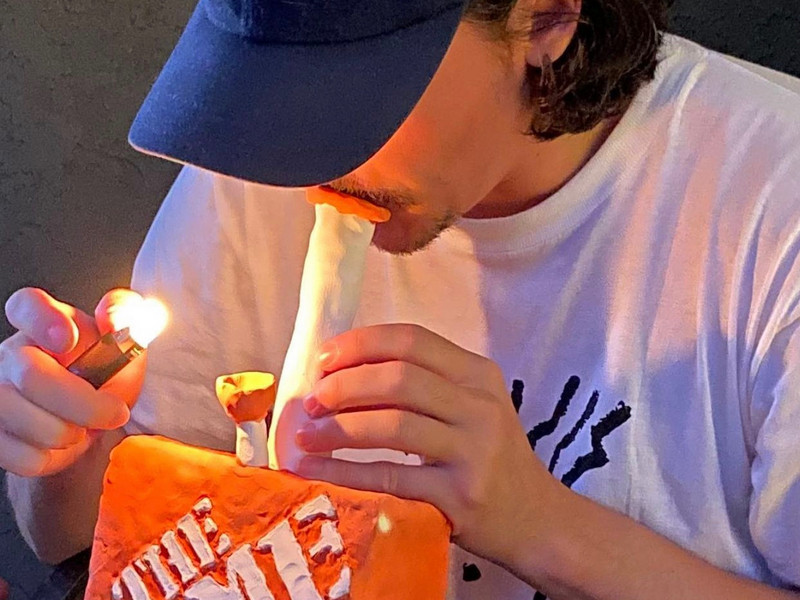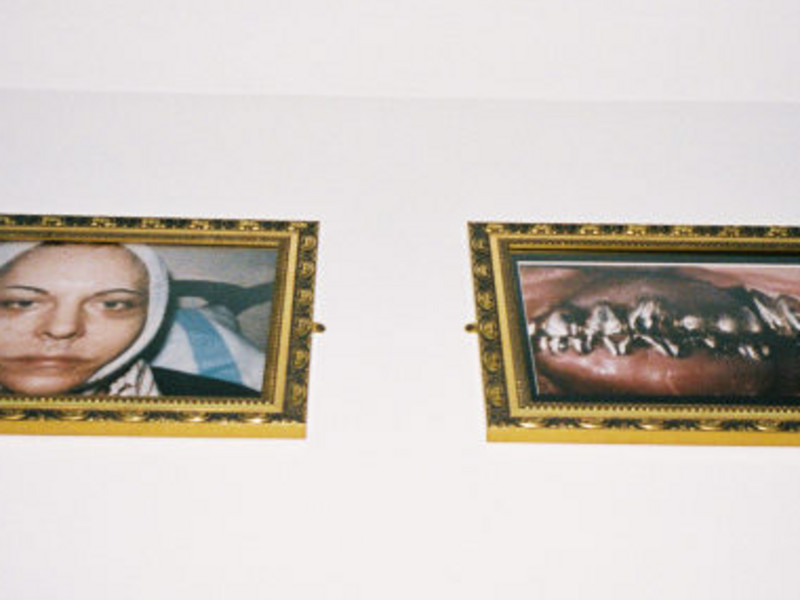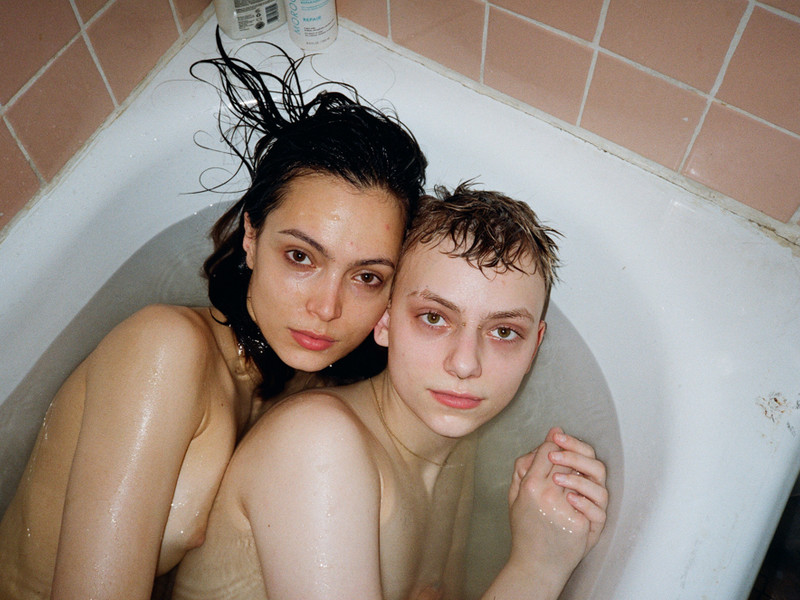Mia Middleton Rewrites Her Own Love Story
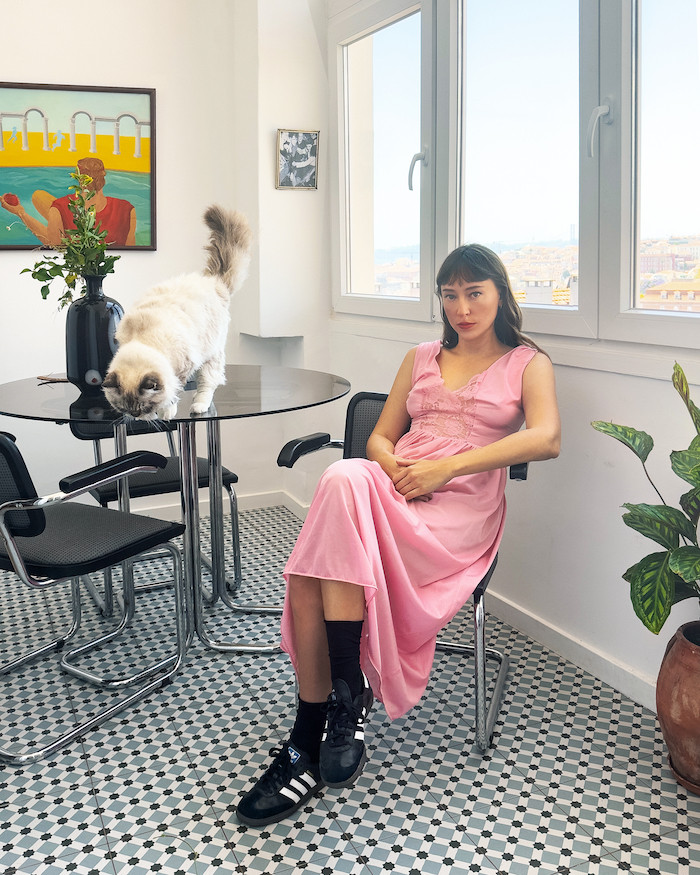
office sat down with the artist to discuss this new series of paintings and the multiplicities that simple snapshots can encapsulate, below.
What is your artistic origin story and what initially interested you in the medium you currently work in?
It was a journey with a lot of twists and turns for me because I basically went through every medium before I discovered painting. I was quite consistently working with sculpture and installation for a number of years before I started painting. I think there were some mental barriers there. I feel like the main benefits of art school for me were not what I was conventionally taught, but what I had to dismantle because it was a weird experience. It was beneficial in some ways, but I feel like looking back on that, I didn't feel completely rewarded by the stuff I was making. I felt this need to reconnect and ground myself in my own voice. I think it was 2020 when I was doing an art residency in Seoul with the Seoul Museum of Art, and I pitched an oil painting residency to them and that was the start. I didn't really know what I was doing so I made quite a few mistakes in terms of the technicalities of oil painting. Though it just felt so natural. But in terms of how my practice and the content of my work brought me here, I was dealing with a lot of these fragmented narratives and scenes. I like the idea of taking viewers on a journey that might take them into weird recesses of their own subconscious. So much of my work is about the whole concept of evocation and I think images themselves are such a perfect way to talk about and to trigger emotions in someone.
It's like we're constantly locked into this stream of thought and imagery in our natural mental states. We often limit ourselves by the way that we box things in and simplify things down. So I think, sometimes, one of the major functions of my work is to take that tiny fraction and expand it. I was just interested in the fact that such a simple image can do that and evoke visceral and emotional responses.
Why do you aim to explore what you call “the elusive language of the body and mind” in your work? What sparked this pursuit of unseen knowledge?
I think it's a life philosophy that I have. Growth is dependent on friction, so as soon as you step slightly out of your comfort zone or into this new realm, you're in more of an aware state. And I think that's something that I was kind of fascinated by — the strength of challenging emotionally intense experiences or moments in life that kind of trip us up. It's eternally challenging to step into the unknown. And yet, I'm so invigorated by it and I try to make a practice out of it in my life. So it was just a no-brainer. It was less something I decided to practice and just a part of my life that I hoped other people had an interest in too.
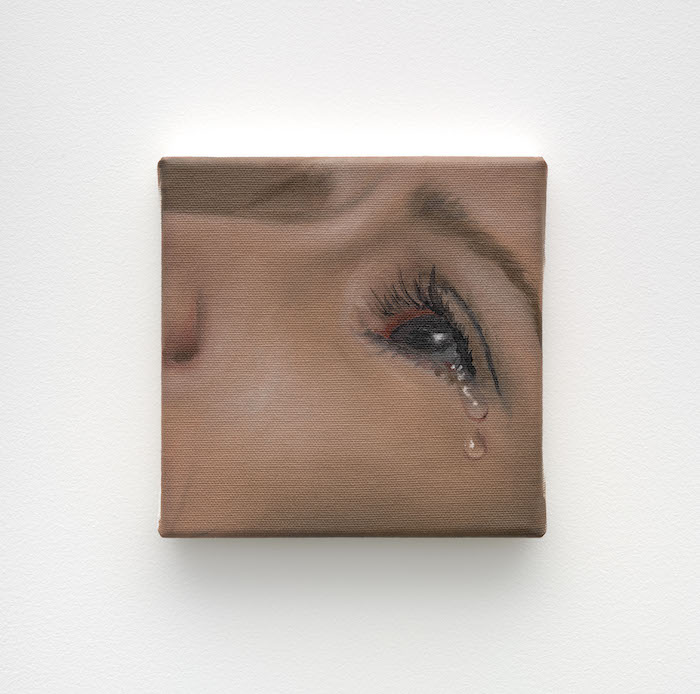
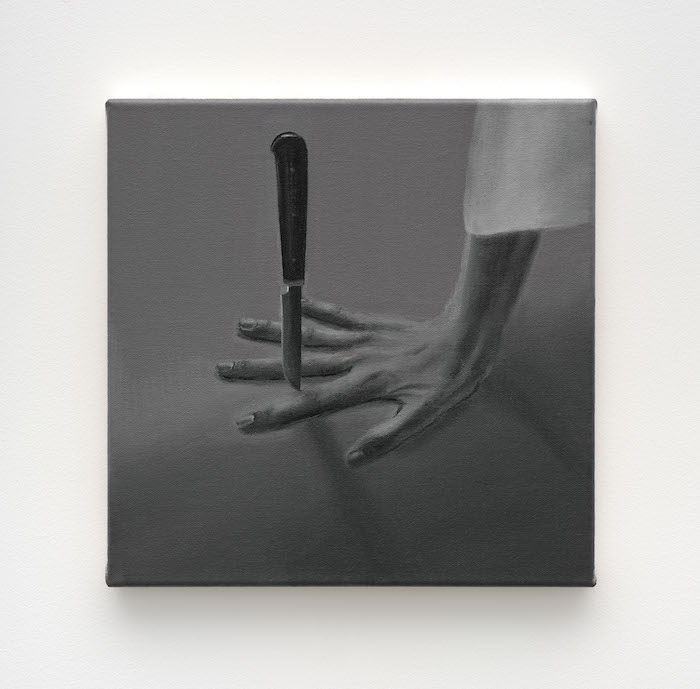
You mention that dualities are at the heart of your work. What dualities make up who you are and how do those juxtapositions appear in your craft — maybe in your color choices or even down to certain gestural brushstrokes?
That's such an interesting question. I feel like there are some personality traits that I bring into the physicality of my work in some ways. But maybe that's just all art making to some degree — it all walks the line between softness and quietness and observation and stillness. A lot of my practices also go leaning into strategic analysis and the associations between images and the bigger picture, so there's this constant zoom-in and zoom-out that I think I'm like always doing personally. And that is definitely reflected in my practice because it's like you've got these tiny scenes or little snippets, but then for me, the most intoxicating part is the combination of images. The paintings themselves often come together pretty quickly, but it's choosing the image and the colors and all that that I get really lost in.
I've also been trying this new thing lately. I used to paint like I was drawing, but oil painting is not like that. It's the push and pull of paint and color and mediums. Lately, I'll make a very perfectionistic painting and then treat it afterward or brush over it in a certain way that adds so much more ephemerality to it. Because for me, I don't love hyperreal work. I prefer for it to still have that dream-like sense to it. At the same time, I'm so drawn to rendering that I can't seem to abandon it. So that's a duality too. I'm constantly trying to take a step back from whatever I happen to be telling myself about something and then add in more context or question it again. Because I think, ultimately, every time I feel like I have certainty or absolute truth about something, then I'm probably on the wrong path. Things should be more gray and multiple things can be true at the same time. And that's the cool thing about life.
Growth and ephemerality are two central themes of your work, as you explore the ever-changing landscape around us. How have you grown, personally, since the conceptual creation process of Love Story?
My last two shows have definitely had more of an autobiographical streak to them. So in some ways, I was navigating family experiences and experiences with loved ones through these works. So there really was a huge therapeutic element to it. I think I was experiencing one of those universal experiences where intimacy can slip very easily into pain. It was something that I hadn't really tackled head-on, necessarily. Love Story was about me going through a lot of those big emotions at that moment — feelings of yearning and love and intimacy. And at the same time, a lot of resistance and self-control and all of these challenging emotions that we feel as we grow up and come into periods in our lives where commitments are deeper.
So I thought the only way out was to make this work. It started with the black-and-white images. The first one I painted, called "Press," recalled these little gestural moments that I was thinking back to and how consuming this experience had been, and how in my mind it became distilled down to just a few little fragments. I felt like these were the perfect introduction to this show because they're all things that happen in a home and in a domestic setting — things that can deeply rattle you and stick with you. But even when I'm starting with something really personal, I wouldn't go deep into it if I didn't feel like I could share that experience with others who may have navigated the same things.
Many love stories, as you address in your works, create unattainable ideals or fantastical narratives as a means of escape. If you could write your own contemporary love story, how would it differ from those we consumed growing up?
I'm a victim of the ideals as much as anyone else. I think we all are and it's something that you constantly have to remind yourself not to do. But at the same time, I feel like if we go too far in the other direction, we can run the risk of disengaging as well. Maybe my story would highlight intersecting moments between not just two people, but many people. Like how a movie will tell a lot of stories at once and then they kind of intersect. I think the more we understand the people around us, the better we can navigate the world.
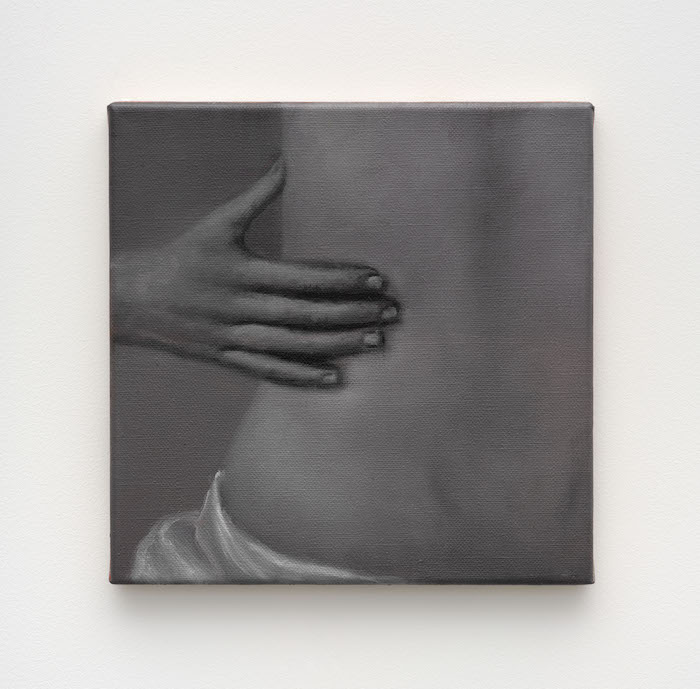
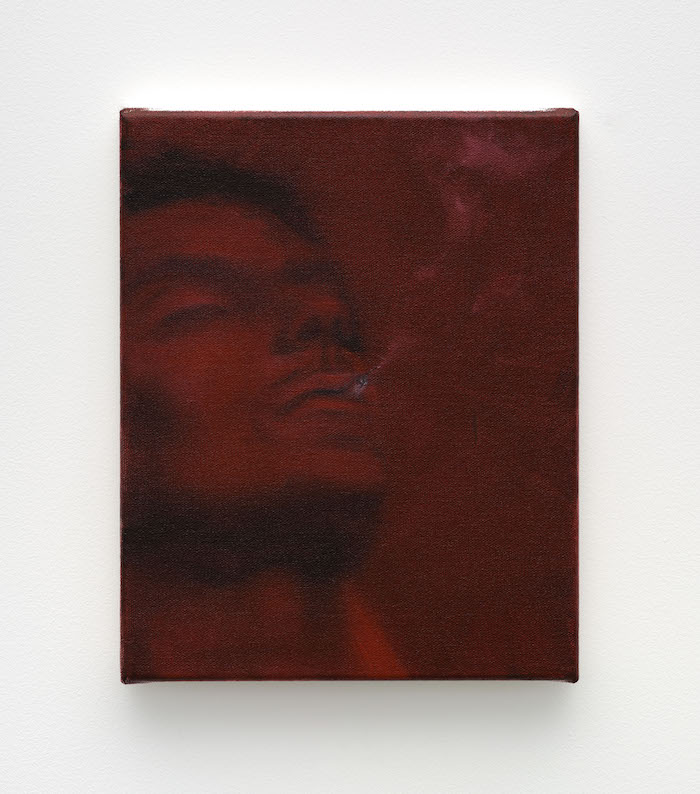
I think we definitely need more non-linear love stories because it’s realistic.
There's obviously tension and monotony in this work — there's an immense sense of loss. You could read that as, 'Oh my gosh, what a depressing narrative.' But I really think, more than anything, that there's beauty in the simple, everyday moments. It makes me think of the movie Everything, Everywhere, All at Once — the mother and father realize that there is joy in just doing laundry and taxes with each other. Sometimes it is the simplest moments that make me feel the most depth.
We talked about traditional love stories, which often conjure images of whimsy and those images might be super colorful. But the color palette employed in your work is dark and a little bit demure. I know we just discussed monotony, but why did you choose to construct your works in this way and where did this choice of color come from?
A lot of it is supposed to mimic when you're trying to remember a dream and you don't remember it — it just comes out as blobs of gray. That's kind of how it seems in my mind anyway. But, actually, the darkness is just an evocation of that which is unseen, which I find alluring. So I think that was one of the reasons that I make paintings in these darker hues or those muddied warm tones. I feel like I'm constantly going back to browns, grays, and greens, but I'm also really obsessed with red and I feel like I can't seem to stop painting with it. I love color as its own conversation and I think it can be so symbolic. Like with red, there's something very corporal; it's like blood and flesh. I also wanted to show the dualities of love in my work. There is that conventional lighthearted love, as you said, but it can also be bloody and gory — especially given traditional symbols of live human organs and hearts.
You state that you think of all of your paintings as the sum of a larger whole. One that may not be fully understood yet, but if you had to put words to that larger meaning or goal — what would it be?
There's a line on my press release for this exhibition that I love. "We look for an answer to ourselves, something through which we ascend or escape our physical bounds. Yet despite this hopeful belief, we know that purity could shatter, giving way to less transcendent feelings. It seems to me that there's little difference between reality and fantasy, memory and imagination.” If I had to pin it down to one thing, that's what it would be. Because I think it encapsulates everything. It's like we can't help but simplify everything down to these little moments. We might have this whole robust experience, but for whatever reason, because it's impossible for us to remember everything, we condense things down. And I think that whole concept is particularly strong when it comes to love relationships, whether that's romantic or otherwise because we are playing in this field where the stakes are high and we're vulnerable. We want to be seen and heard and we want to experience intimacy and love and connection. And I think when those things are all on the table, you start to hunger for a very specific moment or a very specific gesture — or you remember only that which served your sense of joy. Or it might be the opposite. It might be that you only remember the hardest elements if it was a really challenging relationship. That for me is what this show was about. And I'm hoping that viewers realize this phenomenon and that we really do need to sort of dismantle the stories that we tell and the things we hold onto.
